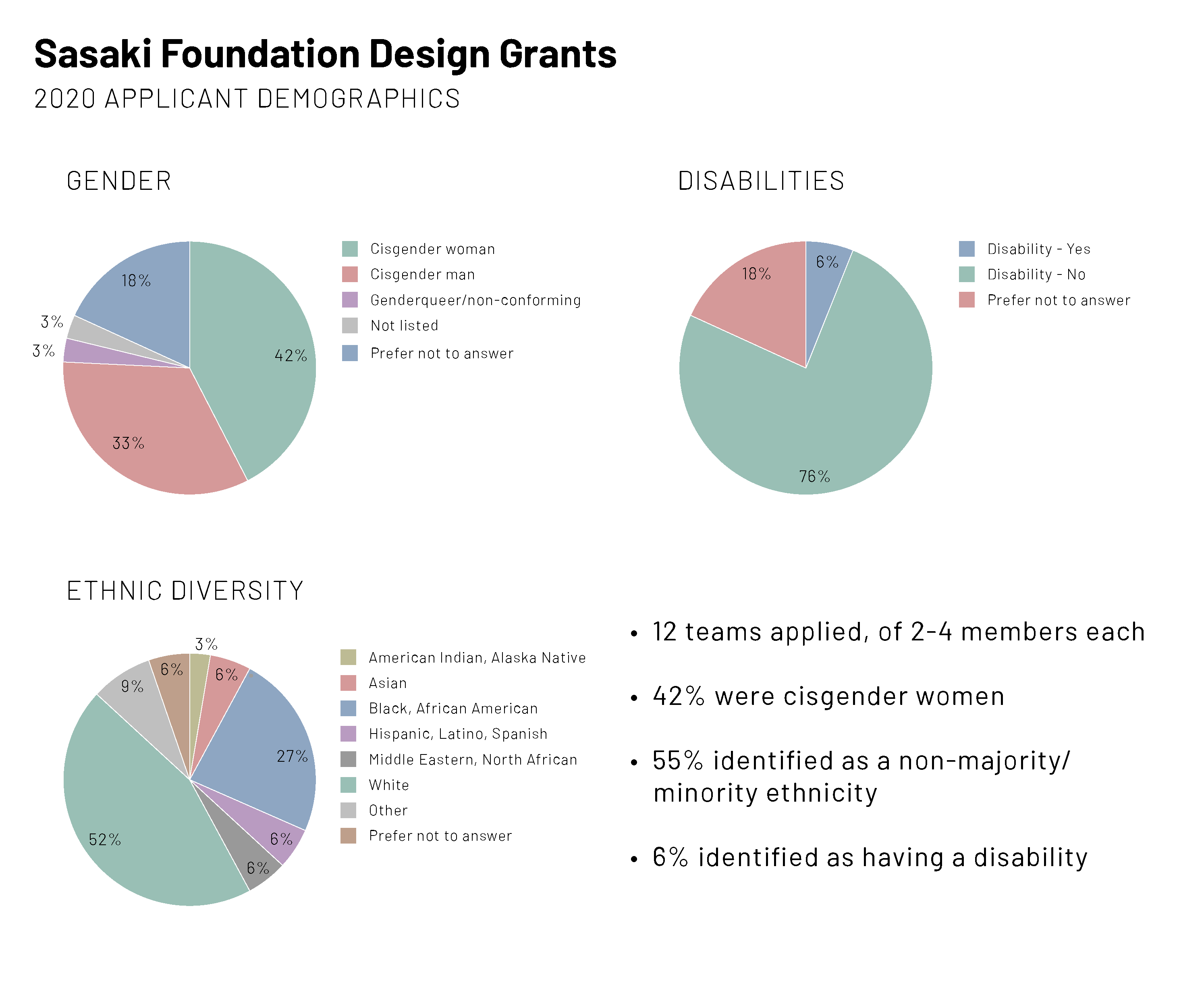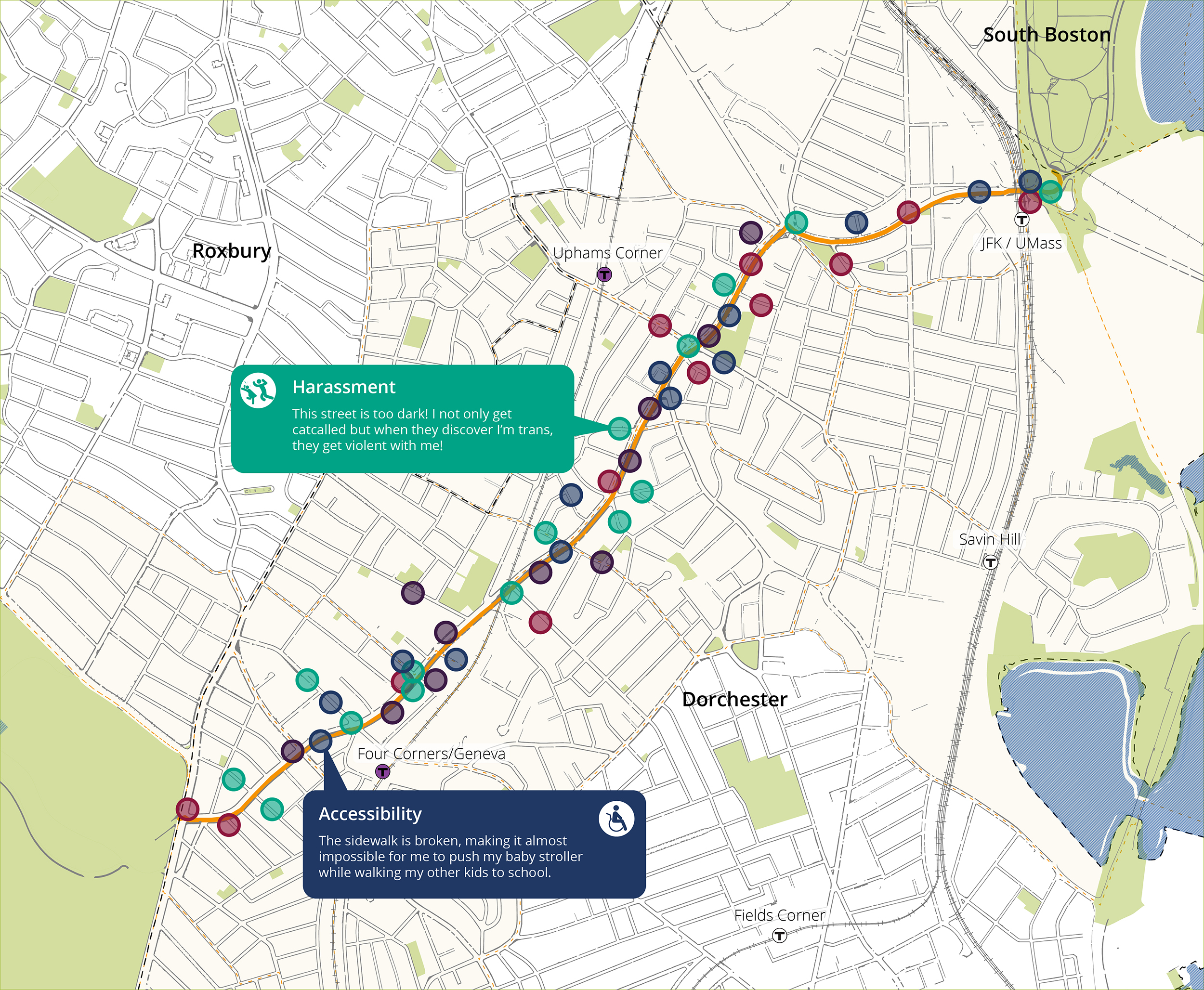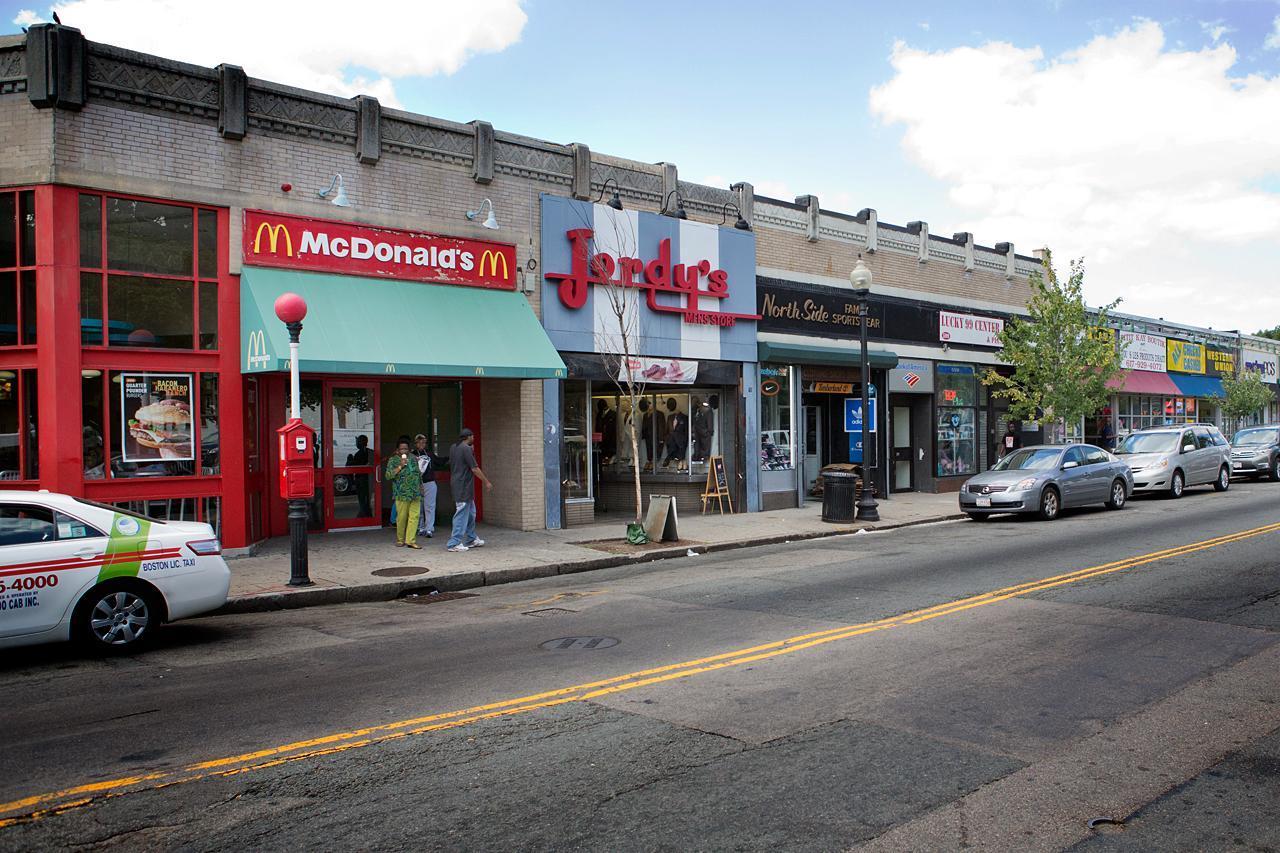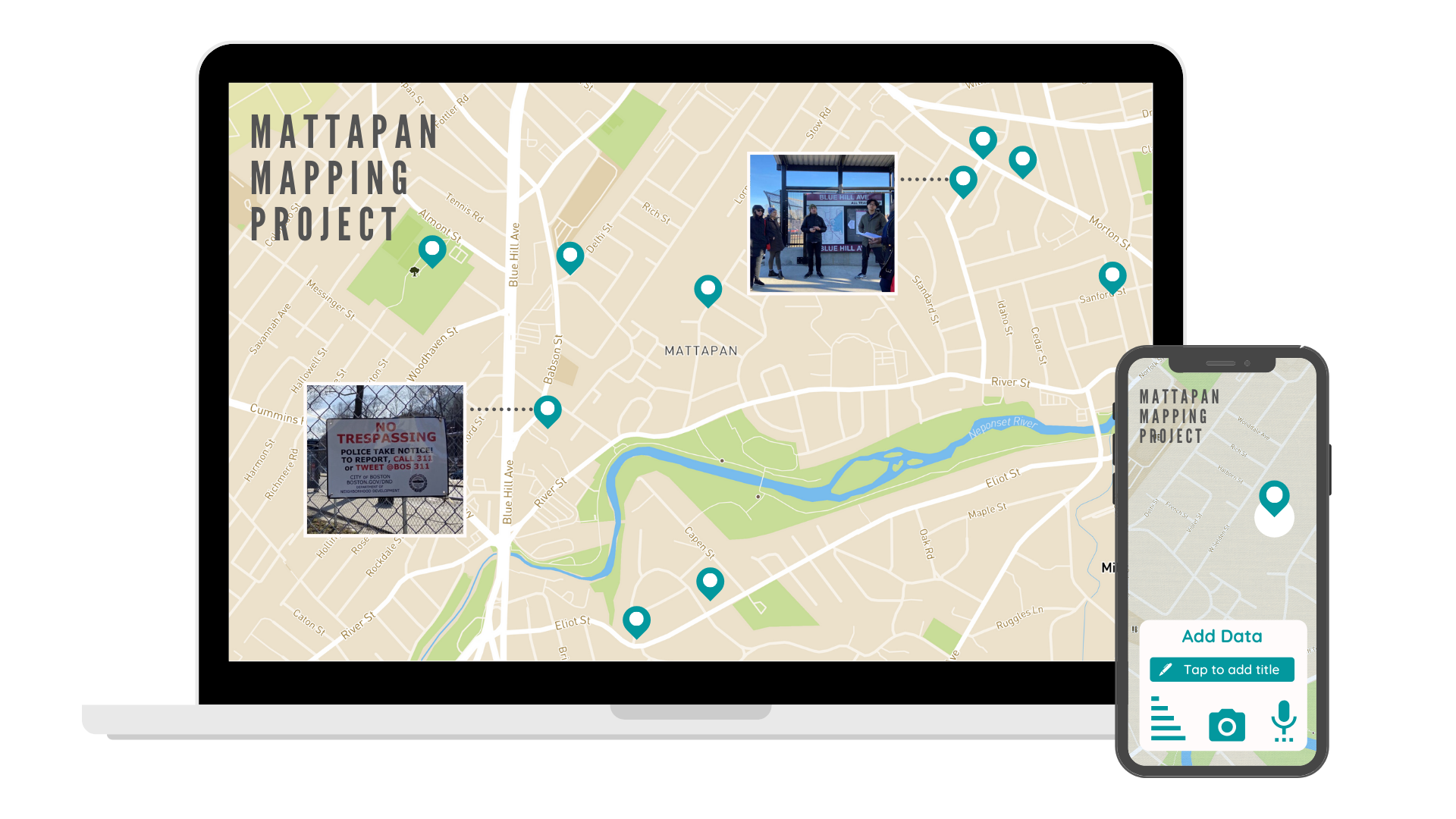Pitch Night 2020, sponsored by Columbia
event hosted virtually due to COVID-19
Sasaki Foundation
We leverage design to tackle global challenges—especially those that adversely affect certain communities.
Grants Process
In 2020, we launched a call for proposals for our third annual Design Grants competition. We received 12 applications representing 45 organizations and institutions, 8 Boston communities, 21 Greater Boston cities, and 5 Gateway Cities.
Explore the 2020 winners and finalists below. Learn more about our 2020 call for proposals here.
The call for proposals
Charting a Course for Action
The challenges in addressing environmental resilience, displacement, affordable housing, access to mobility choices, meaningful public engagement, and other social equity considerations in planning and design are so broad and complex, they require a shared approach to facilitate all the necessary conversations and deliver actionable solutions. Most of these challenges faced by Boston communities are not limited to local neighborhoods—their effects are felt and shared across the Commonwealth and beyond. Multiple futures are at stake, and we can make a difference by acting now. The Sasaki Foundation recognizes the need for interdisciplinary approaches, diverse community voices, and regional cooperation as key drivers to find shared solutions and create shared impact.

The Grant Winners
Columbia Road Gender and Mobility Initiative
Innovation in Transit and Access to Mobility Choices
Creative Community Building
Maria de la Luz Lobos Martinez, Ambar Johnson, Kristiana Lachiusa, Denise Roman
The Columbia Road Gender and Mobility Initiative explores the mobility limitations that stem from gender inequities, particularly the gendered experiences of streets. The redevelopment of the Columbia Road corridor provides an opportunity to address the structural problems emerging from the gender data gap that exists in city planning and for meaningful public engagement on the corridor’s renovation. Accordingly, this initiative will amplify women and gender-expansive silenced voices and help them to have a better mobility experience through gender-specific participatory processes that elevate the perceptions of women and non-binary people in an aim to co-design cities that are legitimately for all.
Meet the team, view the project narrative, visit the team’s website, and participate on the discussion board.

Interactive Map Prototype
Image courtesy Columbia Road Gender and Mobility Initiative

Codman Square
Photo courtesy Jesse Costa of WBUR
Economic Development: Interdisciplinary Collaboration, Co-creation, and Design
Creative Community Building
Neil McCullagh, Taylor Perkins, Lynn Sanders, Charles Vlahakis
Codman Square Neighborhood Development Corporation in Partnership with the Corcoran Center for Real Estate and Urban Action will apply design and design principles to answer the primary research and action question: what is a healthy mix of retail and small business for the neighborhood, and co-generate a community-grounded strategy to support and promote local business that will strengthen the community, improve economic mobility, and advance quality of life for all residents.
The Mattapan Mapping Project
New Models for Housing
Creative Community Building
Allentza Michel, Fatima Ali-Salaam, Barry Fradkin, Laurie Goldman, Cecley Hill, Sasha Hulkower, Kayla Patel, Lily Song
The pace of urban redevelopment and population growth in the Greater Boston area places residents of historically underinvested, racialized, low-income neighborhoods at risk of displacement. The multi-layered drivers of displacement make data—both quantitative and qualitative—hard to aggregate and track. Therefore, it remains unclear as to which policies could allow for neighborhood improvements without posing displacement pressures on the most vulnerable residents. The Mattapan Mapping Project combines nuanced demographic statistics, land use trends, and audio and video media on an online interactive platform to inform strategies by policymakers, activist scholars, and residents to confront displacement.

Mattapan Mapping Project Prototype
Image courtesy The Mattapan Mapping Project
The Finalists
Play Collaborate Change
Creative Community Building
Olga Elizarova, Paige Thompson, Ciara Taylor, Tony Shu
We design skills training experiences, teambuilding workshops, and volunteering activities leveraging design thinking, behavioral science, the sustainable development framework, game mechanics, and real-world challenges “donated” by nonprofits working with underserved communities. Our project is a collaboration with Breaktime—a Cambridge-based nonprofit social enterprise helping youth experiencing homelessness—to create a game prototype to engage with these youth and their need for equal and fair employment opportunities. We focus on co-designing solutions with people directly affected by the challenges; facilitating a mutually beneficial knowledge, skill, and resource exchange between communities, nonprofits, government, and private entities; and enabling effective public-private-civic collaborations.
McKnight Adaptive Preservation Community Sustainable Redesign Project
New Models for Housing
Innovation in Transit and Access to Mobility Choices
Creative Community Building
David Gaby, Charles Knight, Charlie Holmes, Margaret Gaby
